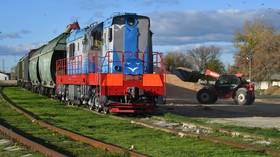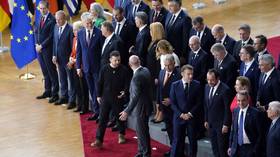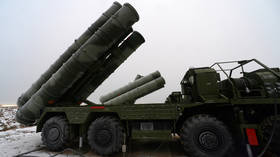Poland explains why it won’t lift ban on Ukrainian grain

Poland will extend a ban on imports of Ukrainian grain and must protect its domestic market despite Warsaw’s broader support for Kiev in its conflict with Russia, President Andrzej Duda said on Monday.
In an interview with weekly magazine Sieci, Duda stated that Warsaw would prolong the current embargo on Ukrainian grain imposed by the European Commission once it expires. The EU veto on Ukrainian wheat, maize, rapeseed, and sunflower seed to Poland, Hungary, Romania, Slovakia, and Bulgaria is set to end on September 15.
“It is obvious that we consistently support Ukraine in its defense against Russian aggression,” Duda said. “But the other matter is – and this is our most important obligation – to guard the interest of the [Polish] Republic. Therefore, the defense of the internal market and the European Union market, which starts with us.”
Last year, the EU suspended customs duties on all agricultural produce from Ukraine for one year, to support the nation’s economy. However, a glut of cheap Ukrainian grain has left EU producers struggling against what they view as unfair competition.
Exports of Ukrainian crops were initially destined for Africa and the Middle East, but instead became stuck in Eastern Europe, endangering the livelihoods of local producers.
In May, the European Commission imposed “exceptional and temporary preventive measures on imports” of the four items from Ukraine, to ease the impact of plummeting prices in neighboring EU countries.
According to the European Commission, the measure was enacted to address the concerns of farmers in the five member states that suffered substantial losses due to the influx of Ukrainian grain.
The EU agriculture commissioner, Janusz Wojciechowski, earlier called for the restrictions to be extended until at least the end of October, despite fierce opposition from Ukraine.
For more stories on economy & finance visit RT's business section












